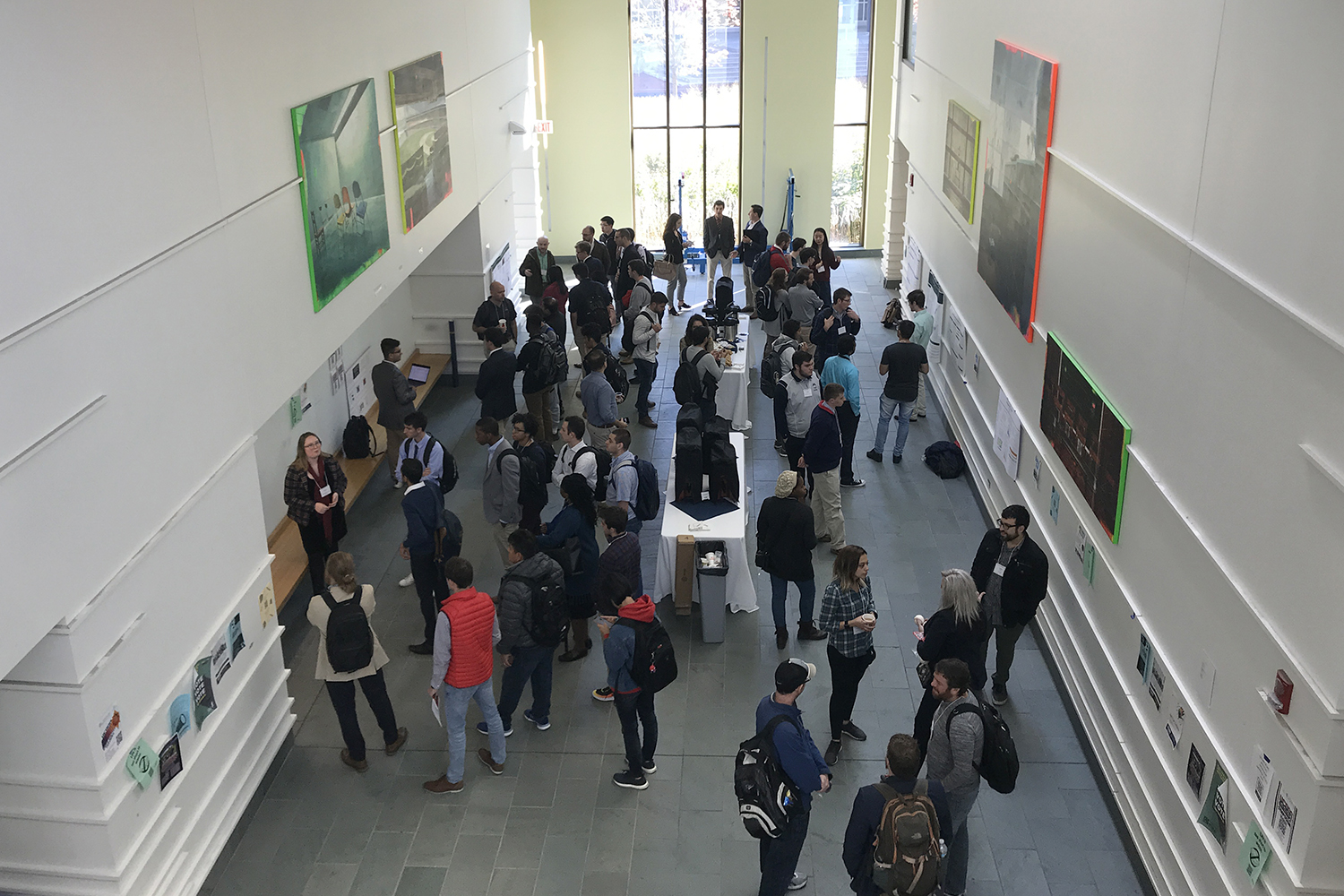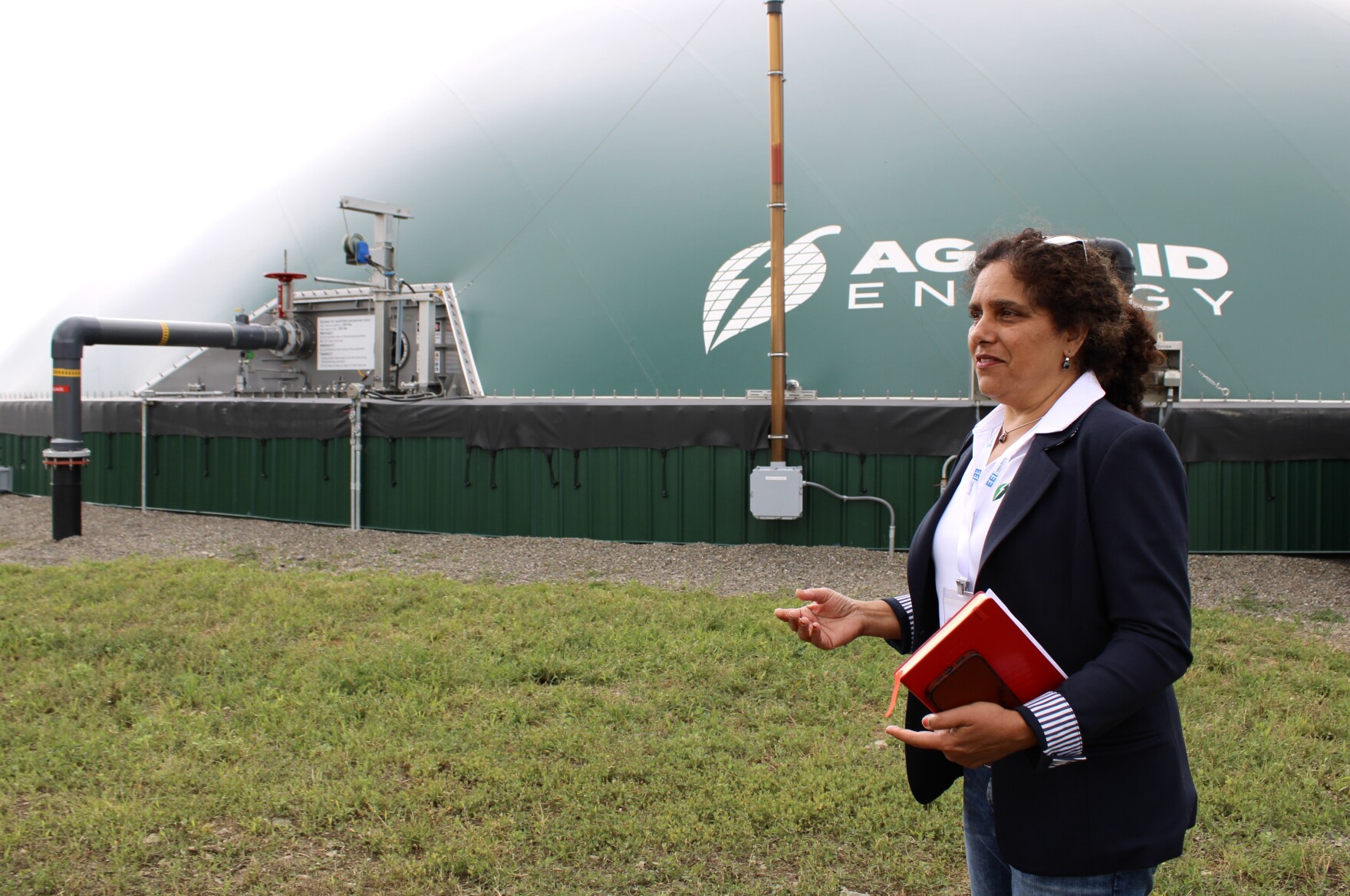On Oct. 5, a university with a strong national academic reputation and a storied basketball program hosted a new conference on sports statistics, billed as the first of its kind to focus on the needs of students.
The UConn Sports Analytics Symposium brought undergraduate and graduate students together with academic and industry professionals to learn how to use data science to enhance modern sports.
“We wanted to have something where students can get their foot in the door and see all the opportunities involved in sports analytics,” says Taaj Cheema ’20 (CLAS) of Tolland, Connecticut.

The event featured keynote talks by Gregory Matthews ’11 Ph.D., assistant professor of mathematics and statistics and director for data science at Loyola University Chicago; Meredith J. Wills, a data scientist at SportsMEDIA Technology Corps; and Brian Macdonald, director of data analytics at ESPN.
The day-long program included introductory and advanced workshops on topics like R and Python programming languages, led by graduate students in the Department of Statistics. Students also presented their own research at a poster session.
Many of the about 130 student attendees came from UConn, with others traveling from Colorado State University, California State University, Fullerton, and even Saratoga High School in California.
The conference was hosted by UConn’s Statistical Data Science Lab in the Department of Statistics and the UConn Data Science Club, a student organization advised by faculty in the College of Liberal Arts and Sciences and School of Engineering.
Cheema, who is vice president of the UConn Data Science Club and an individualized major in data science, says he initially proposed the event to engage UConn’s growing population of students interested in the field of data science.
“UConn is a big sports school, and one of the most interesting applications for data analytics is in sports,” he says. “For students, a lot of opportunities can be out of reach. This event brings the opportunities right to UConn.”
Jun Yan, a professor of statistics and advisor to Cheema and the UConn Data Science Club, agrees that analytics of professional and fantasy sports often draw students to data science.
“Sports analytics are applications of data science that use available data to make better decisions across the whole spectrum of the sports business,” says Yan. “The analytics skills can of course be applied to other fields, but sports get many students interested in the first place.”
According to Matthews, the field of data science was just becoming a formalized academic discipline while he was a Ph.D. student at UConn less than a decade ago.
During that time, Matthews began writing about statistical topics in sports for his blog, Stats in the Wild.
Since then, Matthews says he’s seen the role of data analytics in sports grow significantly, with more teams and leagues looking to historical data to get a competitive advantage over opponents.
“Data science has already made a lasting impact on sports, from defensive shifts in baseball to the way basketball is played in the NBA–with the shifting reliance on the three-point shot,” he says. “I predict that the impacts will continue to grow in the decades to come.”
About a dozen other conferences focusing on sports analytics will take place this academic year in the U.S., among them the annual MIT Sloan Sports Analytics Conference in Boston. But Matthews, Yan, and Cheema all say these events can be very technical and can cost hundreds of dollars to attend.
“[UConn’s event] is a departure from many other high-profile sports analytics conferences, which generally focus on more advanced topics,” says Matthews. “Those conferences can be expensive, which is often a barrier to student attendance. Alternatively, this event is nearly free.”
Yan hopes to expand the event in the future so that students can use it as an opportunity to learn, network, and showcase their skills to industry representatives.
“Our faculty has expertise directly applicable to sports analytics,” says Yan. “In the future, as our impact grows, the conference will also provide a platform for the sports industry to recruit our students.”
The UConn Sports Analytics Symposium was sponsored by the Department of Statistics, Sport Management Program, Center for Population Health, and College of Liberal Arts and Sciences at UConn; ESPN; and the New York City Metropolitan Area Chapter and the Statistics in Sports Section of the American Statistical Association.



